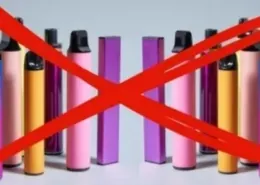Southeast Asia Vape Taxation: A Diverse Regulatory Landscape
Overview of Vape Tax Structures and Regulations in Southeast Asian Countries
Southeast Asia presents a diverse and complex landscape when it comes to the regulation and taxation of e-cigarettes. Countries in the region have adopted a wide range of policies, from implementing comprehensive tax structures to outright banning vaping products. The regulatory environment in each nation is shaped by its unique approach to public health and tobacco control, resulting in a patchwork of policies that impact both consumers and businesses across Southeast Asia.
Vape Tax Policies in Southeast Asian Countries
The following table provides a comprehensive overview of the e-cigarette tax policies in place across Southeast Asia, including tax rates per milliliter, vaping bans, and relevant consumption or device taxes:
| Country | Tax Policy | Notes |
|---|---|---|
| Brunei | No specific tax policy. | Vapes are banned. |
| Cambodia | No specific tax policy. | Vapes are banned. |
| Indonesia | Open-system e-cigarettes: IDR636 ($0.04)/ml; Closed-system e-cigarettes: IDR6,776 ($0.44)/ml. | Tax policy under Regulation 192/PMK.010/2022; excise stamps are required. Consumption tax: 10% VAT. |
| Laos | No specific tax policy. | Vapes are banned. |
| Malaysia | 0.40 MYR ($0.09)/ml for nicotine-containing and zero-nicotine e-liquids, starting April 1, 2023. | Reflects the country’s decision to legalize nicotine vapes. Devices are not taxed. Consumption tax: 6% GST applies. Excise stamps are required for e-liquids. |
| Myanmar | No specific tax policy. | Regulatory developments are under consideration. No consumption tax or device tax. |
| Philippines | Nicotine liquids: PHP60 ($1.22)/10 ml; Nicotine salts: PHP52 ($1.06)/ml, with a 5% annual increase starting in 2024. | Devices are not taxed. Consumption tax: 12% VAT applies. Excise stamps are required for all e-liquids. |
| Singapore | No excise tax on e-cigarettes. | Vapes are banned. |
| Thailand | No specific tax policy. | Vapes are banned. |
| Vietnam | No specific excise tax currently. Draft decree proposes a 50% import tax on e-liquids and devices. | Devices taxed under general import duties. Consumption tax: 10% VAT applies. Excise stamps may be required if the draft decree passes. |
| Timor-Leste | No specific tax policy. | The newest member of ASEAN, currently unregulated. |
Key Findings and Implications
The diverse vape taxation policies across Southeast Asia reflect the region’s varied approaches to public health and tobacco control. Several countries, such as Brunei, Cambodia, Laos, Singapore, and Thailand, have opted to ban vaping products entirely, prioritizing public health concerns over potential tax revenue.
In contrast, Indonesia, Malaysia, and the Philippines have implemented specific tax policies for e-cigarettes, with tax rates varying based on the type of product and nicotine content. These countries have recognized the potential for vaping products to serve as a harm reduction tool and have sought to regulate and tax them accordingly.
Vietnam and Myanmar are currently in the process of developing their regulatory frameworks for e-cigarettes, with Vietnam proposing a draft decree that would introduce a 50% import tax on e-liquids and devices. As these countries navigate the complex landscape of vape taxation, they will need to balance public health considerations with the potential economic benefits of a regulated vaping market.
Conclusion
The vape taxation landscape in Southeast Asia is characterized by its diversity and complexity, with countries adopting a range of policies based on their unique public health priorities and regulatory environments. As the e-cigarette market continues to evolve, it is essential for businesses and consumers to stay informed about the taxation policies in their respective countries to ensure compliance and make informed decisions. Policymakers, in turn, must carefully consider the potential impacts of their regulatory choices on public health, consumer behavior, and economic growth in the region.
- Spain Plans to Ban Smoking and Vaping on All Terraces by 2027 - August 7, 2025
- Maldives Issues MVR 127,000 in Vape-Related Fines in July - August 7, 2025
- Alabama Lawmaker Proposes Ban on Vaping in Public Places - August 7, 2025









